I'm on this bus on a psychedelic trip
Reading murder books, tryin' to stay hip
I'm thinkin' of you, you're out there so
Say your prayers
Say your prayers
Say your prayers
Eyes Without a Face, Billy Idol
Schedule
These are the dates the discussion posts will go up, but remember you can go at your own pace and contribute when you’re ready!
Kick-off: February 3, 2023✓Midway Check In: February 16, 2023✓Final Discussion: March 3, 2023 at 5PM PST
If you can’t make it to the digital hang, you can always use the comment section to leave your thoughts, reviews, and reflections at any time.
Movie Night Reminder
Don’t forget that our movie night will be tomorrow: Friday, February 17, 2023 at 5:00 PM PST. We’re watching Candyman (2021) via Teleparty link. Here are the content warnings provided by IMDb. I’ll send the link via a thread so keep an eye on your email or Substack! I’ll send the link a few minutes before the hour. You don’t have to download anything. Just click on the link I send and you’ll be there 🍿
Queer Horror History
As soon as I started reading the essays from It Came from the Closet I was reminded to a recent documentary I watched on Shudder called Queer for Fear: A History of Queer Horror. It’s a four-part documentary series from executive producer Bryan Fuller and gives us the story of LGBTQIA+ horror, the relationship between queer audiences and horror, and the queer horror community as a whole.
You’ll see some overlap in some of the voices from It Came from the Closet and Queer for Fear. Carmen Maria Machado is part of the cast as well as the director from Jennifer’s Body and many other actors, directors, writers, drag queens, etc. They all share their personal queer takes on various genre classics, parsing out both hidden and blatant messages like little gay detectives.
The documentary doesn’t only stick to movies, delving into literary classics as well as modern movies and TV shows with LGBTQIA+ representation or sometimes with just a resonating connection with the queer community. If you’re not trying to get a Shudder subscription, queer horror history has been done quite a bit on Youtube. You can do a quick search and find some amazing deep dives. Queer for Fear is just the most recent, funnest and most diverse set up I’ve seen. If you do get a subscription, make sure to also watch the indispensable Horror Noire: A History of Black Horror and its anthology series.
Gay Horror Film Bible
If you want to know more about horror history you have to check out the Harry M. Benshoff’s Monsters in the Closet: Homosexuality and the Horror Film. You can feel Monster’s influence on shows like Queer for Fear as it was one of the first books to talk about queerness in film.
Monster in the Closet is a history of the horrors film that explores the genre's relationship to the social and cultural history of homosexuality in America. Drawing on a wide variety of films and primary source materials including censorship files, critical reviews, promotional materials, fanzines, men's magazines, and popular news weeklies, the book examines the historical figure of the movie monster in relation to various medical, psychological, religious and social models of homosexuality. While recent work within gay and lesbian studies has explored how the genetic tropes of the horror film intersect with popular culture's understanding of queerness, this is the first book to examine how the concept of the monster queer has evolved from era to era. From the gay and lesbian sensibilities encoded into the form and content of the classical Hollywood horror film, to recent films which play upon AIDS-related fears. Monster in the Closet examines how the horror film started and continues, to demonize (or quite literally "monsterize") queer sexuality, and what the pleasures and "costs" of such representations might be both for individual spectators and culture at large.
Check out this quick interview with Horror Queers to hear Benshoff talk about his motivations for writing about horror and queerness and where he thinks representation on the genre may be headed.
Welcome to the Midway Check 📖 It Came from the Closet: Queer Reflections on Horror
These are simply questions to get you thinking. You’re not required to answer any of them to participate. Remember to keep comments and replies respectful and hate-free!
Your Reading so Far
How is your reading going?
Are there any essays you already know will be your favorites?
Have you watched any movies to get a better understanding of an essay?
Have you read anything that has surprised you?
Thoughts and Feelings
How do you think you’ll feel once you’re done reading?
Have any of the essays helped you gain a different perspective or appreciation on horror or a horror movie in particular?
What do you think of the connections the authors have made to certain movies?
Are there some recurring themes or motifs you’re noticing throughout the book?
**Bonus Round** Queer for Horror History
How interested are you in queer cinematic history?
Is there a topic in particular you love diving into or would like to learn more about: “queer-coding” to circumvent the Hays Code, classic monsters as metaphors, movies that explored the AIDS crisis, etc?
Benshoff’s book starts with the conception of cinema and ends around the 80s. What other themes do you think would come up if it had extended into the 90s and the aughts?
Anything you want to add? Add it in the comments.
See you at the final discussion. Don’t forget to RSVP!


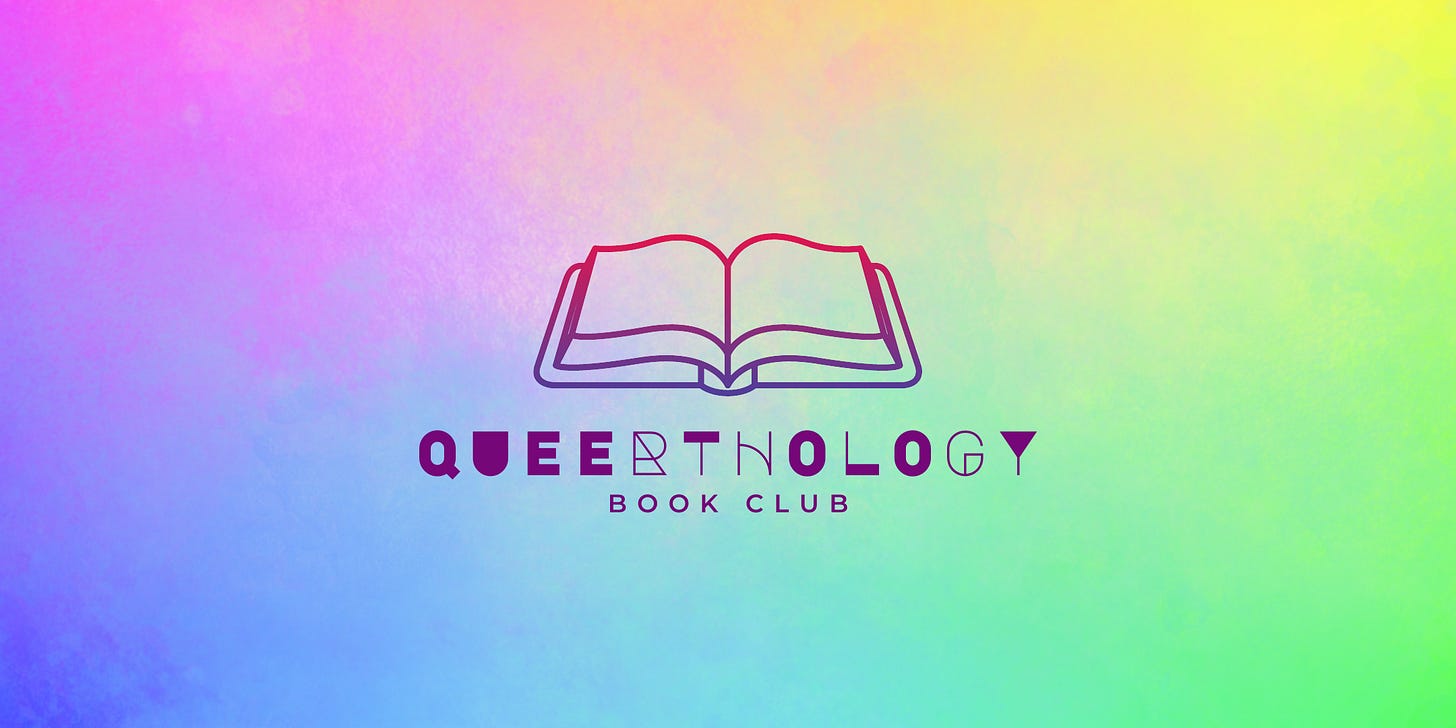
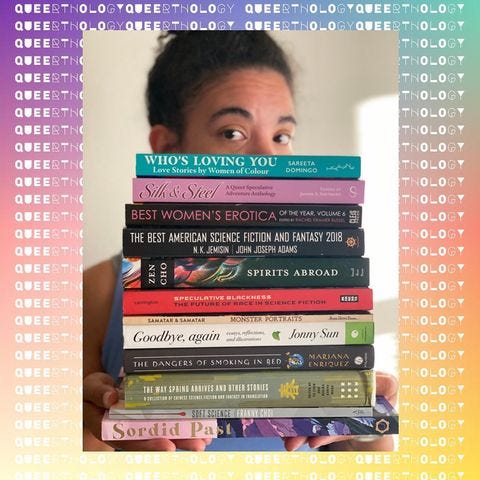
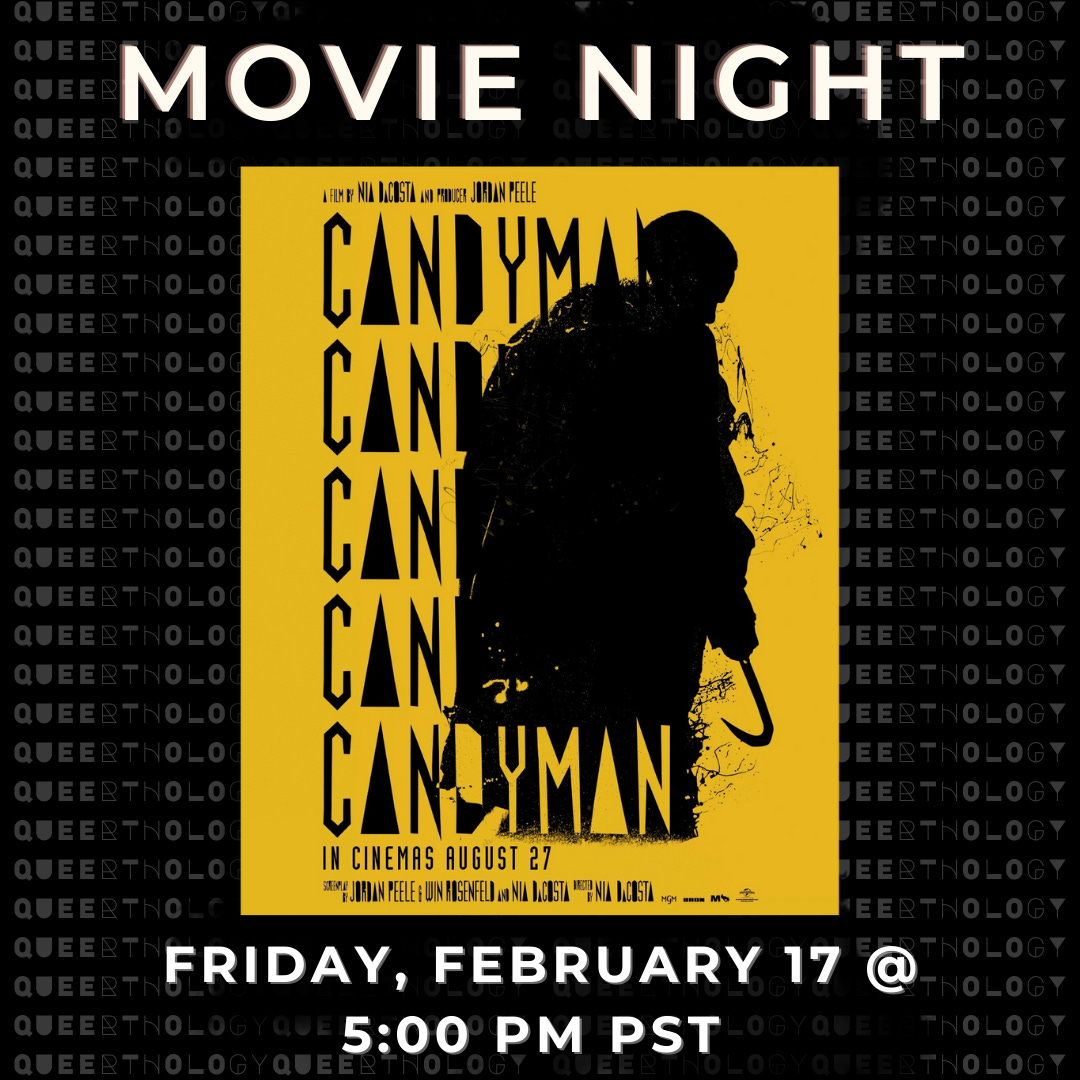

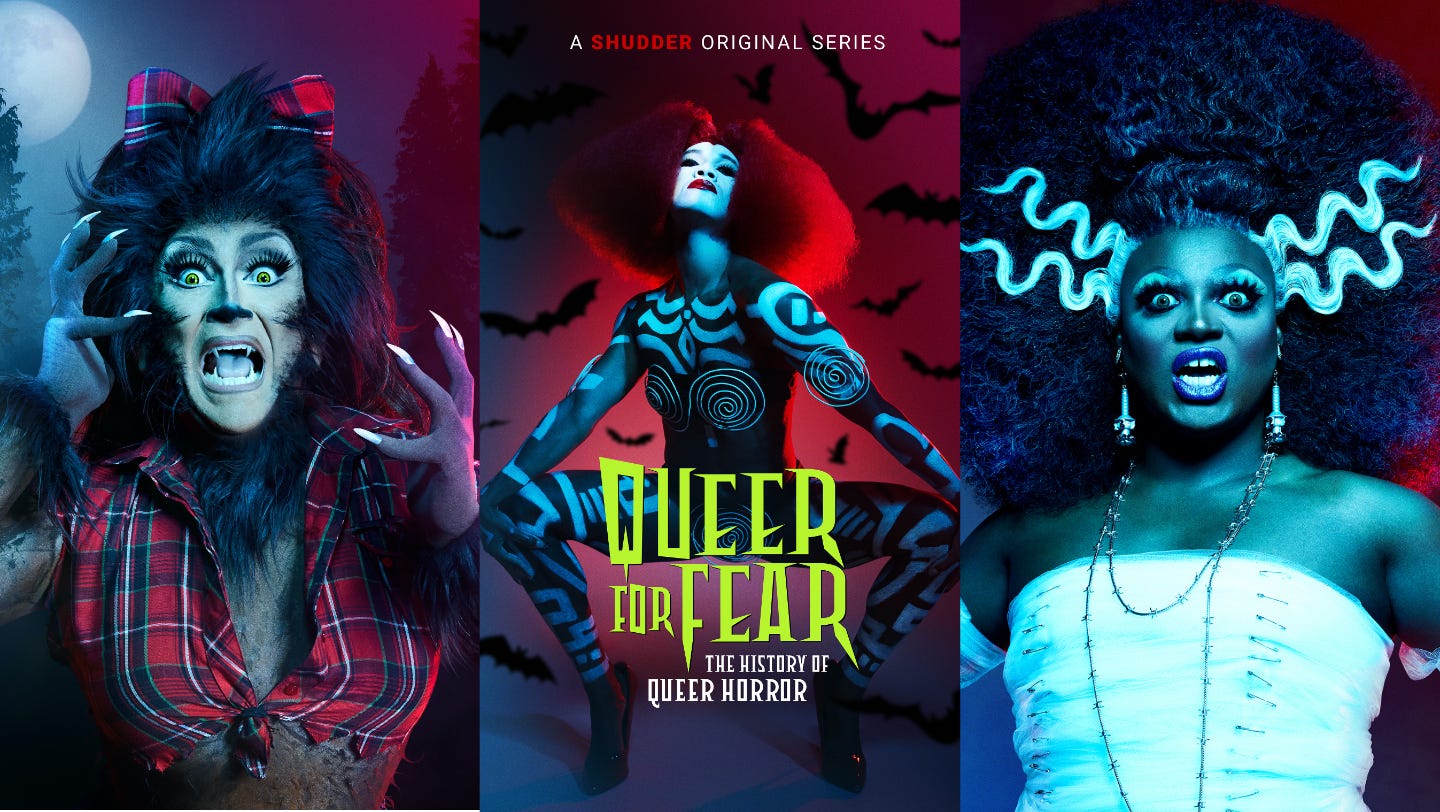
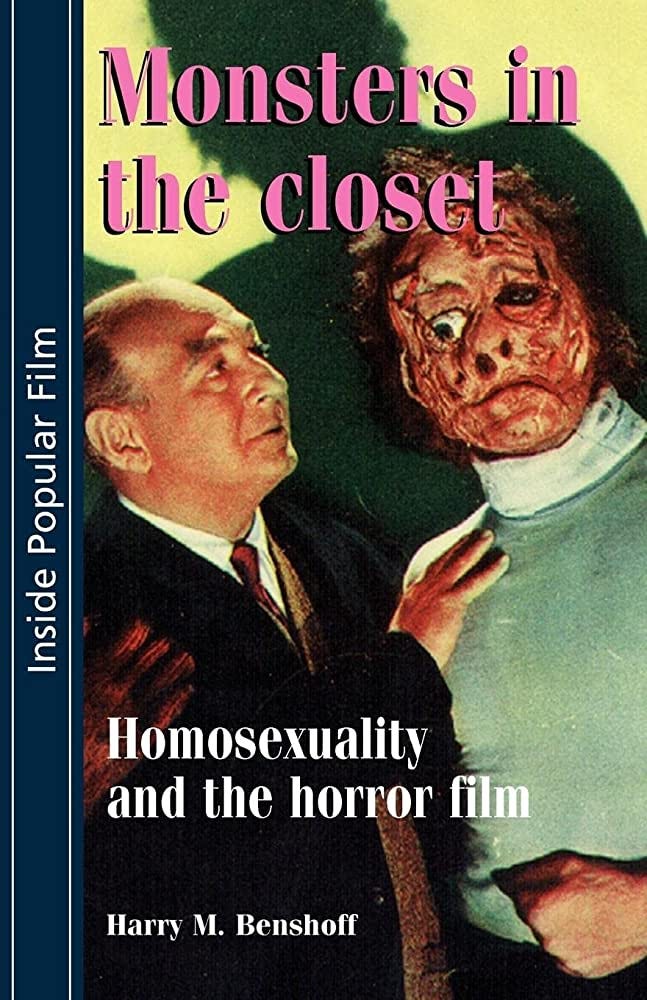
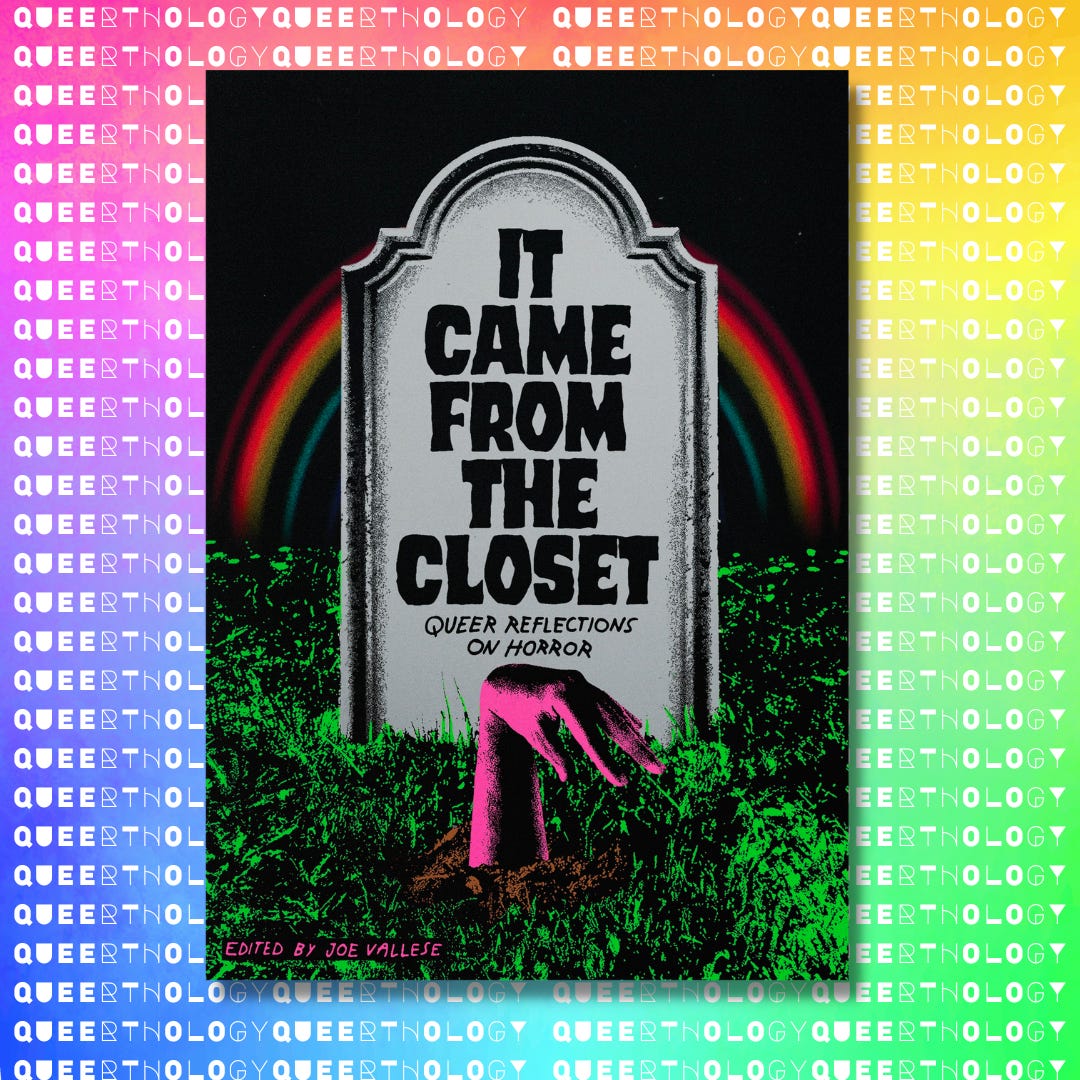

I am enjoying this book so much. The essays have me thinking critically of works I’ve previously never seen through a queer lens and I feel like it’s open the doors for works beyond the ones mentioned in this anthology.
The Exorcist, I believe it’s the first one, caught me by surprise. I don’t know why I never saw the encoding of the threat to supremacist culture in these types of films. I guess it’s because I don’t usually gravitate to horror or attempt to think about them beyond the traditional scare thrill.
I took a queer theory and film class back when I was getting my MA and I loved it. I’m familiar with the Hays Code and the saturation of traditional gender roles such as the hypermasculine cowboy and the ridiculing of the effeminate during the terror of McCarthyism. I’m also familiar with Reagan’s crusade and its effect on cinema. However, horror is something I’ve steered clear from so I’m learning so much and the essays are opening my eyes to a genre I would otherwise dismiss.
I’m halfway done atm, and yet I feel like there’s so much to say about it, so hopefully my thoughts are more concise for the wrap up 😅